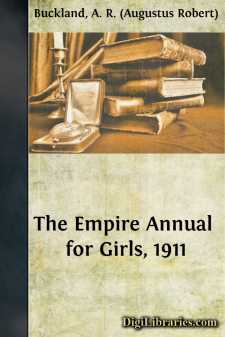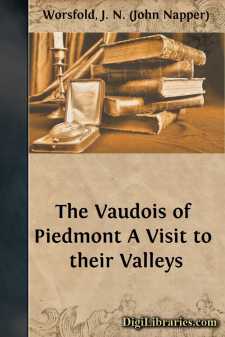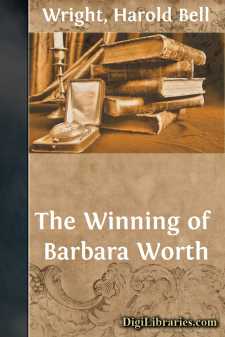Categories
- Antiques & Collectibles 13
- Architecture 36
- Art 48
- Bibles 22
- Biography & Autobiography 813
- Body, Mind & Spirit 142
- Business & Economics 28
- Children's Books 17
- Children's Fiction 14
- Computers 4
- Cooking 94
- Crafts & Hobbies 4
- Drama 346
- Education 46
- Family & Relationships 57
- Fiction 11829
- Games 19
- Gardening 17
- Health & Fitness 34
- History 1377
- House & Home 1
- Humor 147
- Juvenile Fiction 1873
- Juvenile Nonfiction 202
- Language Arts & Disciplines 88
- Law 16
- Literary Collections 686
- Literary Criticism 179
- Mathematics 13
- Medical 41
- Music 40
- Nature 179
- Non-Classifiable 1768
- Performing Arts 7
- Periodicals 1453
- Philosophy 64
- Photography 2
- Poetry 896
- Political Science 203
- Psychology 42
- Reference 154
- Religion 513
- Science 126
- Self-Help 84
- Social Science 81
- Sports & Recreation 34
- Study Aids 3
- Technology & Engineering 59
- Transportation 23
- Travel 463
- True Crime 29
Sort by:
CHAPTER I A LECTURE OF THENARD’S The sun was setting over Paris, a blood-red and violent-looking sun, like the face of a bully staring in at the window of a vast chill room. The bank of cloud above the west, corrugated by the wind, seemed not unlike the lowermost slats of a Venetian blind; one might have fancied that a great finger had tilted them up whilst the red, callous, cruel face took a last...
more...
by:
Louis Becke
CHAPTER I "Hallo! young lady, what on earth are you doing here?" and Gerrard bent down over his horse's shoulder, and looked inquiringly into the face of a small and exceedingly ill-clad girl of about ten years of age. "Nothing, sir, I only came out for a walk, and to get some pippies." "And where do you get them?" "Down there, sir, on the sand," and the child...
more...
A RELIC FROM AFRICA The Maid of the North was ready for sea. Only the touch of the engineer was wanting to send her, once again, on a homeward voyage to the St. Lawrence. Meanwhile, in solemn undertones, she was breathing forth her superabundant steam. Behind the wharf lay the city of Boston. A score of passengers, together with friends who had come aboard to see them off, were scattered about the...
more...
On a windy night of Spring I sat by a great fire that had been built by Moors on a plain of Morocco under the shadow of a white city, and talked with a fellow-countryman, stranger to me till that day. We had met in the morning in a filthy alley of the town, and had forgathered. He was a wanderer for pleasure like myself, and, learning that he was staying in a dreary hostelry haunted by fever, I invited...
more...
CHAPTER I INTRODUCES THE MUMMY "Oh, what a perfectly lovely mummy! Just fancy!—the poor thing—dead how many years? Something like five thousand, isn't it? And doesn't she look just like me! I mean, wouldn't she, if we had both been dead as long?" As she said this, Miss Nitocris Marmion, the golden-haired, black-eyed daughter of one of the most celebrated mathematicians and...
more...
The Christmas ChildBYMrs. G. de Horne VaizeyA happy thought, a cross-country journey, a strange discovery, another happy thought, and many still happier thoughts hereafter!Jack said: "Nonsense! We are all grown up now. Let Christmas alone. Take no notice of it; treat it as if it were an ordinary day." Margaret said: "The servants have all begged for leave. Most of their mothers are dying,...
more...
by:
Wilkie Collins
Chapter 1. The date is between twenty and thirty years ago. The place is an English sea-port. The time is night. And the business of the moment is—dancing. The Mayor and Corporation of the town are giving a grand ball, in celebration of the departure of an Arctic expedition from their port. The ships of the expedition are two in number—the Wanderer and the Sea-mew. They are to sail (in search of...
more...
CHAPTER I. Early on the morning of Easter Monday, 1871, in company with a devoted Italian pastor, I left my temporary home in the comfortable "Grand Hotel," in the little town of Pallanza, to gratify a long-felt desire of visiting that part of Europe made sacred by ages of heroic suffering and courageous endurance for faith and fatherland—the valleys of Piedmont. As we steamed up the lake...
more...
CHAPTER I. INTO THE INFINITE LONG AGO. Jefferson Worth's outfit of four mules and a big wagon pulled out of San Felipe at daybreak, headed for Rubio City. From the swinging red tassels on the bridles of the leaders to the galvanized iron water bucket dangling from the tail of the reach back of the rear axle the outfit wore an unmistakable air of prosperity. The wagon was loaded only with a...
more...
by:
William Le Queux
CHAPTER I. IS MAINLY MYSTERIOUS. “A woman—perhaps?” “Who knows! Poor Dick Harborne was certainly a man of secrets, and of many adventures.” “Well, it certainly is a most mysterious affair. You, my dear Barclay, appear to be the last person to have spoken to him.” “Apparently I was,” replied Lieutenant Noel Barclay, of the Naval Flying Corps, a tall, slim, good-looking, clean-shaven...
more...











